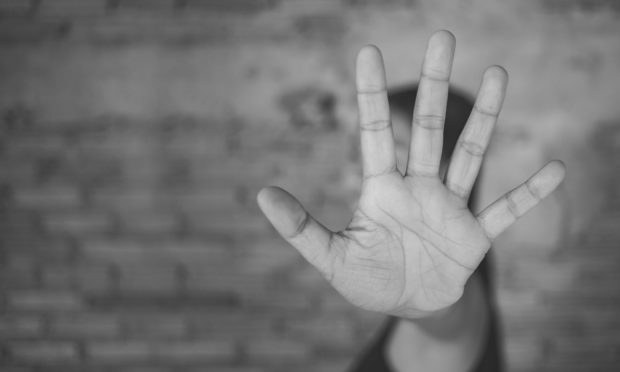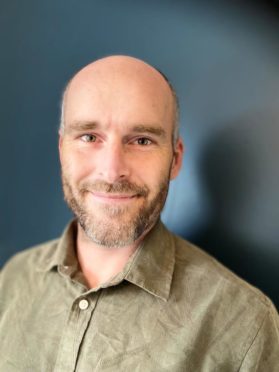It is impossible to imagine what it must be like to be transported countless miles and forced under threat of violence into sex work or into the dangers of selling illegal drugs.
But that is the horrible reality of human trafficking, as World Day Against Trafficking In Persons (July 30) highlights this week.
While many of us may think these horrors are stories from far off countries, the ground-breaking investigation by DC Thomson’s Impact team has painfully reminded us how close to home these crimes really are.
No stone should be left unturned in the fight to end human trafficking.
– Phil Arnold
Hundreds of human trafficking cases caused by organised gangs are happening right here in Scotland, on our doorsteps.
In fact, we know that in 2020 there were 387 survivors of human trafficking reported in Scotland. The real number could be ten times that.
One case is one too many. No stone should be left unturned in the fight to end human trafficking, and the UK Government’s Nationality and Borders Bill could be an important step towards that goal.
Concerns over UK bill
Without any changes to the current proposals, however, the British Red Cross is concerned that the Bill will weaken the identification of survivors of trafficking, damage prevention efforts, reduce the availability of care and support for survivors, and could increase risks of exploitation.
The trauma human trafficking causes is long-lasting, damaging people’s mental and physical health and the ability to rebuild their lives.
Yet, when police and other authorities encounter people who have been trafficked, there are often no services at all that can provide survivors with immediate psychosocial support or material assistance they really need.
At the British Red Cross, along with other organisations, we work incredibly hard to fill in those gaps. Our experience tells us that it takes time to build the trust and the safety people need to be able to talk about trafficking.
There is therefore a big ask for first responders to identify indicators of trafficking and to know what to do next. We must give them those skills, hand in hand with building trust in the immigration and asylum system so people in need can talk. That is where this new Bill comes in.
Under the UK government’s plans, the British Red Cross is concerned that survivors will be treated with suspicion, rather than primarily as potential survivors of trafficking.
Making it harder to access support can play into the hands of traffickers. They often exert control and coercion by telling people that they will be imprisoned or deported if they seek help.
Barriers preventing support
Our recent report, First Steps to Safety, found that fear and lack of trust in authorities are the biggest barriers preventing people taking up support on offer.
Of the 172 people recovered during the research period through police raids on locations of suspected exploitation, only four people agreed to enter the UK’s system for identifying survivors of trafficking.
Knowing this, we fear that the government’s proposed changes will make it harder for people to come forward and access the vital services they need to recover and rebuild their lives.
The British Red Cross is therefore urging the government to focus on improving care and support, both immediately after someone leaves exploitation and in the longer term after someone is recognised as survivor of trafficking.
Being recognised as a survivor of trafficking does not currently come with longer-term support, meaning many survivors are left facing risks of re-trafficking. Survivors who don’t have secure immigration status are particularly exposed, as they can’t access many forms of welfare support and can be left facing homelessness and destitution.
Anyone can become a victim of trafficking and many factors can make people more vulnerable to it. However, migrants are particularly in danger of being trafficked, or trafficking may even be a central element of their migration journey.
‘We must support them’
The British Red Cross, alongside many others, are calling for increased protection for people recognised as survivors of modern slavery by providing secure immigration status. Secure immigration status would ensure that survivors can recover, rebuild their lives and start to look to the future.
With so many issues to consider and debate as the Nationalities and Borders Bill progresses through parliament, it can be all too easy to forget the people in need.
DC Thomson’s Impact team have told the story of the mother of two children taken from her village in Romania to Perth where she was raped each day, fearing she was being readied for the sex trade.
The stories of vulnerable young teenagers from London exploited by drug gangs then sent north to Aberdeen, Dundee and Inverness to sell crack cocaine and heroin.
The stories of cockle pickers in Arbroath and farmworkers in rural Perthshire, forced to work long hours for little under threat of violence.
World Anti-Trafficking Day is about them, and others like them. We must not forget them. We must support them.
From the DC Thomson Impact team:

